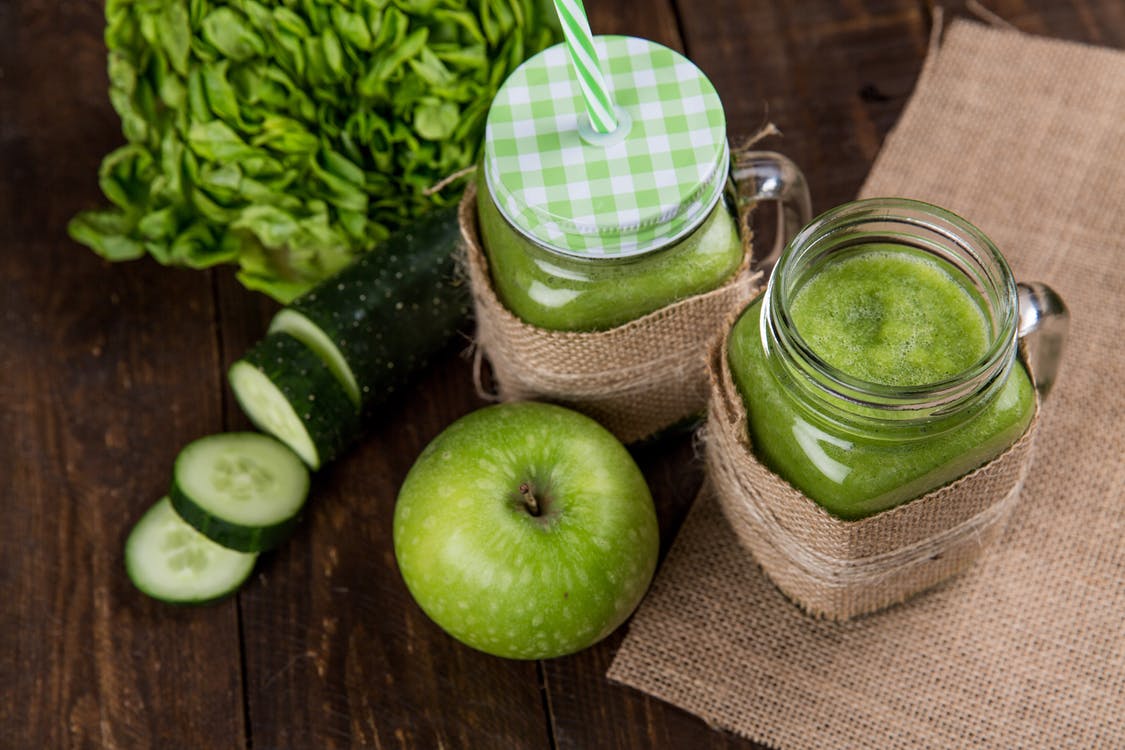True story: My wellness obsession ruined my mental health

Wellness has become a sexy buzzword over the past few years. Instead of remaining as some obscure ancient ayurvedic practice or other, it has now permeated mainstream culture and is conscientiously practised among our increasingly health-conscious generation.
Wellness. The state of being in good health — physically, mentally, holistically — especially as an actively pursued goal.
And man, did I pursue it actively.
I’m not sure if it’s my perfectionist streak that drove me down the path of wellness obsession, or if this obsession is a grotesque permutation of anorexia during my teenage years. But my determination to bring my body to a state of optimal wellness saw me radically altering my lifestyle — to the detriment of my mental health.
How can wellness be bad for me? The word itself involves the word well. But too much of a good thing may, in fact, result in something pretty messed up.
I had battled anorexia when I was in junior college, and in retrospect, a large part of it had stemmed from my desire to do well at everything: my studies; my appearance, and my social life.
I scored good grades, I had a close circle of friends, I hit my goal weight — until my goal weight kept going lower and lower, and I was starting to miss my period and feel faint from climbing a flight of stairs. I was doing well on the surface, but deep inside I was a mess — depressed and anxious and even suicidal.
No more, I thought to myself after A-Levels. I just want to be well from now on.
It felt like closing a chapter. It felt like I was walking away from a toxic, miserable part of myself.
But little did I know I was walking right into the grasp of another fixation.

There are plenty of wellness trends one can adopt these days — just ask Google. From gluten-free diets to juice cleanses, supplements and healing crystals, there are now so many (commercialised) ways to take care of our body it’s hard to lose sight of what works and what is just an attempt to capitalise on the anxieties of people like me.
Wellness is now a commodity that we can literally consume. According to the Global Wellness Institute, the global wellness economy stands at whopping $4.2 trillion in 2017, a 6.4 percent increase from $3.7 trillion in 2015.
The industry comprises of personal care, beauty and anti-aging, healthy eating, nutrition and weight loss, fitness and mind-body, preventive and personalised medicine and more.
…too much of a good thing may, in fact, result in something pretty messed up.
That’s a lot to feed off. Clearly, I’m not the only one hankering after this ideal state of perfect, sublime wellness. Nor was I the only one willing to spend a pretty penny to attain it. Those detox plans, special juices and cleanses, crystals, pills and potions had, after all, contributed to that $4.3 trillion economy.
Back when I was a teenager, Gwyneth Paltrow had just founded Goop, her wellness business that later grew into a lifestyle empire when more people hopped on the wellness bandwagon.
My friends and I thought she was kooky, promoting her oil pulling kits and quartz bottles (which is basically a plastic water bottle with a quartz crystal rooted in it to ward off negative vibes).
But then I started buying into all that too. I was determined to heal myself after my battle with anorexia, and how better to start than to invest in the things that promised to do exactly that?
So I trawled the Web for stories, tips, and new ways to improve my physical and mental state. I visited forums to discuss the effectiveness of certain detox plans or cleanses.
I popped supplements daily, loaded my fridge with superfoods, rubbed essential oils on my wrists to (ironically) reduce anxiety, and lit scented healing candles all evening to ensure restful sleep.
My friends and family looked at me askance, surveyed the various paraphernalia in my room and the crystals placed in strategic corners of the house, and asked if there was something wrong with me.
But they didn’t get it, I thought. I was on the path to recovery. I was healing. I was becoming well.
Until I wasn’t.

Wasn’t wellness simply about being well? What I was doing seemed decidedly unwell.
All I wanted was to strip off my inglorious past — tainted with the battle scars from anorexia — into something newer, fresher, healthier. I wanted to be like the women in health magazines and on my Instagram feed, beaming confidently and secure in the knowledge that they were well. I internalised that.
What I failed to realise was that a large part of wellness was balance.
And my rampage of manic consumerism was anything but balanced. It stemmed from and pointed to a deep-seated issue that I had hitherto not addressed, much less banished or worked through.
It was easier to gulp down my juices and stock up on superfoods — just as it had been easier to count calories obsessively and track my daily physical activity during my anorexic phase — than to look my mental state in the eye and demand just what the hell it was doing to me.
My healthy lifestyle had become performative, almost ritualistic, for me. I felt off-kilter when I didn’t do all the things listed above, even moody and — you guessed it — anxious.

Realising that I had a problem didn’t put me on the path to recovery right away. I had to accept that I had a problem and then learn how to accept the care I needed.
True wellness, said a therapist friend, was taking a good hard look at the things that were making me unwell. In my case, it was my inability to let go of any imperfection or failing, which made me anxious and driven to extreme measures to reestablish control based on my distorted view of what perfection was.
If only I would be kinder to myself, I could learn to stop imposing those standards and pressures on myself.
My quest for wellness had made me broken, exhausted, and drowning in self-loathing, much like my quest for the “perfect weight” had when I was 18.
Becoming truly well again meant that I had to examine the thoughts in my head, listen to the negative voices in my head that told me I was mediocre and undeserving of love and understand why they existed.
Why was I not satisfied with the way I looked, the way I was? It was a difficult conversation to have with myself, but a necessary one I had to sit through in order to emerge at the end of the tunnel.
I had to break out of my unhealthy patterns and routines, and understand that nothing catastrophic was going to happen if I stopped exercising twice a day to the point of sustaining chronic injuries or stopped drinking my green juice every morning.
Whenever I started feeling overwhelmed and cranky, I took moments throughout the day to pause and reflect on how I was feeling instead of turning to my healing crystal and hoping it would chase away negative energy — because the negative energy was created by me.
Wellness can only begin from within. It starts with thinking well of yourself, being kind to yourself. It starts with taking the time to do the things that make you happy — talking to a loved one or chilling with a good book — and it starts with being honest and accepting towards who you are, imperfections and all.
At the heart of it all, wellness, it seems, is all about unconditional and unwavering self-love.
This article was first published in CLEO Singapore.